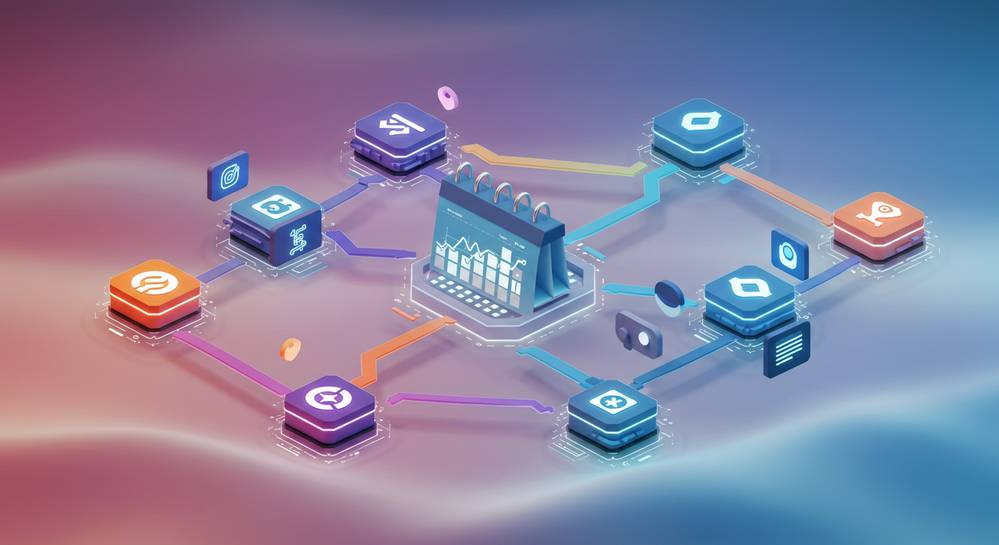In the rapidly evolving landscape of electronic sports, staying ahead means knowing where and when the action unfolds. A competitive gaming events calendar is not just a schedule; it’s a strategic roadmap for players, fans, and industry professionals alike. This indispensable tool offers a centralized view of upcoming tournaments, major championships, and league play across a multitude of titles. Understanding and utilizing such a calendar is paramount to navigating the dynamic world of Esports, ensuring you never miss a critical moment or opportunity.
Understanding the Competitive Gaming Landscape

Navigating the Competitive Gaming Events Calendar
A comprehensive competitive gaming events calendar is indispensable for anyone serious about Esports. This dynamic resource transcends a mere list of dates; it serves as a strategic roadmap for players, teams, fans, and investors alike. Tracking major esports tournaments and understanding their schedules is crucial for staying ahead in this rapidly evolving industry.
For professional players and organizations, an accurate esports schedule 2025 facilitates optimal training regimens, travel logistics, and scouting opportunities. It allows teams to strategically plan their competitive year, identifying key qualification pathways and championship events. This foresight is vital for securing sponsorships and maximizing performance.
- Strategic Planning: Calendars enable long-term planning for teams and organizers.
- Market Insight: They offer a clear view of industry trends and investment opportunities.
- Fan Engagement: Fans rely on them to follow their favorite games and players.
Beyond individual participation, the competitive gaming events calendar provides critical market intelligence. Industry stakeholders, including investors and developers, leverage this data to identify growth areas and potential partnership opportunities. Understanding the flow of major events helps in assessing market health and anticipating shifts, including insights into potential gaming industry mergers and acquisitions influenced by event performance and viewership.
Key Components of an Effective Esports Calendar

An effective competitive gaming events calendar transcends simple scheduling; it provides granular details vital for informed engagement. To truly leverage this resource, one must identify specific components offering a complete picture of each event. These elements ensure users gain maximum value from tracking the esports landscape.
- Game Titles Covered: A robust calendar clearly lists featured games, from established titans like League of Legends to emerging titles. This allows targeted interest and participation.
- Dates and Locations: Precise start and end dates are crucial. Information on whether an event is online or offline, including physical locations, aids planning for attendees and viewers.
- Tournament Format: Understanding the competition structure, such as single-elimination or group stages, is key. This detail informs player strategy and spectator expectations.
- Prize Pool Information: The total prize money or incentives directly reflects an event’s scale and prestige. Larger pools attract top-tier talent and increase viewership.
- Participating Teams or Players: Knowing who is competing, including notable organizations or star players, builds anticipation. It highlights key matchups and narratives.
- Streaming Platforms: Clear guidance on where to watch live, typically platforms like Twitch or YouTube Gaming, ensures fans can easily access the action.
These detailed components collectively empower users to make strategic decisions. They transform a basic list into a powerful tool for navigating the complex world of competitive gaming.
How to Leverage These Calendars for Success
The strategic utility of a competitive gaming events calendar extends to various stakeholders within the gaming community. For players, it is a planning tool for career progression. Aspiring professionals identify open qualifiers, track competitive seasons, and schedule practice routines. Understanding the flow of major and minor tournaments allows for focused training and preparation, crucial for reaching peak performance.
For fans, this calendar is their ultimate guide to entertainment. It ensures they never miss watching their favorite teams or players. It helps them plan viewing schedules and even arrange travel for live events. This deep engagement drives viewership and strengthens community bonds, fostering a vibrant Esports ecosystem.
Organizations, content creators, and sponsors also benefit significantly. They use the competitive gaming events calendar for strategic marketing campaigns, content scheduling, and identifying prime partnership opportunities. By understanding upcoming events, they can align their efforts for maximum impact. Consistently consulting these detailed schedules optimizes involvement for everyone, from competitors aiming for the top to dedicated followers celebrating high-level play.
The Future of Esports Event Tracking and Engagement

The evolution of the competitive gaming events calendar is intrinsically linked to technological advancements and the growing sophistication of the industry. Future calendars will move beyond simple dates, integrating interactive features and personalized notifications. Imagine a dynamic resource deeply connected with social media and game clients, offering a truly seamless user experience.
These advanced calendars will do more than just list matches. They will allow users to set reminders, view live statistics, and even engage in integrated fantasy league bets. Artificial Intelligence will play a pivotal role, predicting event outcomes and highlighting emerging talent. This enriches both the fan experience and strategic planning for teams.
As Esports expands into mainstream entertainment, the demand for data-rich, user-friendly tracking solutions will intensify. Developers are innovating to provide global tools, offering multi-language support and time zone synchronization. This continuous improvement ensures staying connected to competitive gaming becomes intuitive and immersive for everyone.
Embracing a robust competitive gaming events calendar is no longer an option but a necessity for anyone serious about Esports. It is the cornerstone of effective planning, informed spectating, and strategic participation. By staying connected to these vital schedules, you position yourself at the heart of the action, ready to engage with the next wave of excitement and innovation. Don’t miss out on the thrill; make it a habit to check your go-to Esports calendar regularly and explore more at Tap To Play Games.